New Internet Scam Targeting Songwriters
This week one of our Island musicians was approached through Instagram direct messaging by a user, @jakereeverzz, who claimed to be a fan of their music. They asked if the artist would consider writing a song for their son’s birthday for a fee of $400. $200 would be paid up front and $200 on completion.
After agreeing to these terms, @jakereeverzz explained that he uses a business account which does not support 3rd party apps, so would have to send a “mobile check.” 1 The artist agreed. Over the next several days, the conversation became steadily more concerning.
The so-called customer said that there had been an error, and their secretary had accidentally requested a check for $2000 instead of $200.2 The artist was told they could deposit the $2000, keep the full $400 payment for the song commission, and e-transfer back the excess of $1600 to the customer’s secretary.3 The artist, having a cap on cashback/transactions, was unable to complete the transfer.4 Additionally, the initial $2000 was put on hold until the check cleared with the bank.
The scammer also continually asked to be sent screenshots of when payments went through or errors occurred.5
The user then claimed to have immediate expenses they needed to pay as soon as possible, so they asked that the artist send $800 through PayPal to tide them over until the transaction was approved.6
Enough red flags had been raised by this point that the artist refused to send anything through PayPal and instead went to their local banking branch to investigate. After numerous conversations both in person and with the bank’s phone helpline, it was concluded that the entire situation was a scam. Thankfully, the artist was able to hold on to the erroneously transferred funds and must now simply wait until the $2000 “mobile check” is processed, bounces, and disappears from their account.
The fraudulent Instagram account is being reported, blocked, and the scam reported to the authorities.
RED FLAGS:
1– There is no such thing as a “mobile check.”
2– Sending a target of a scam “too much” so that you will return them the excess is a common angle scammers will use to have you send them money before the initial (fraudulent) check has cleared.
3– If they were using a business account that did not support 3rd party apps, why was it then possible to send money through the secretary?
4– Upon further investigation, It was discovered that the email the artist was given to e-transfer the excess funds was not even connected to an Interact account.
5– This is a clear attempt to catch a glimpse of personal information within the target’s bank account. Luckily, the artist took the time to black out any relevant banking information.
6– Scammers will often claim that they have some kind of urgent need for their money back to manipulate their target into an “act of kindness.”
It is easy to see scams as automated spam emails, bots, or phony businesses trying to sell you something; what is less recognizable is when people are personally targeted by a scammer trying to purchase something from them.
This artist was targeted because they are a musician who often works freelance (as so many of our artists do), because they are openly kind, and because they offer services that typically operate through social media. Platforms like Instagram make it all too easy to see what an artist is like, what their interests are, the kinds of relationships they have, and how to best take advantage of them.
These scams are not all robots randomly spewing messages posing as the CRA, or somebody in another country requesting bail money through an email chain. They are growing in intelligence and personal connection as fast as the technology that allows them to do so.
@jakeyreeverzz likely had to do minimal research to see that this artist was a potential target, and understand how best to manipulate them. This person was incredibly convincing, and fleshed out their story with characters, nicknames, personality. They approached this artist like any other customer has in the past and gained a certain level of trust before they started sneaking in the complications and fraud.
At a time when the arts industry has taken such a hit, scams like this are discouraging and frightening. It’s important now more than ever to approach business logically regardless of how much you may need the work.
Artists and freelancers in general–– stay on your guard.
Do not accept any money that is not a commonly known method of payment (ie. Interact e-transfer, PayPal, or in-hand payment).
Do not let your empathy overcome your ability to protect yourself. You can be kind and still be wary.
If it feels phishy, it probably is.
If it doesn’t feel phishy at first, it still might later.
Talk to your bank as soon as something feels off.
You are not stupid for not catching it sooner. Scammers are simply getting smarter.
Stay safe out there.








